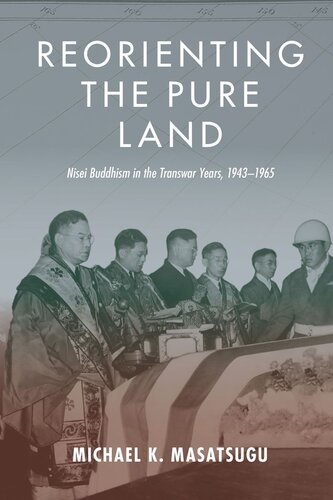

Most ebook files are in PDF format, so you can easily read them using various software such as Foxit Reader or directly on the Google Chrome browser.
Some ebook files are released by publishers in other formats such as .awz, .mobi, .epub, .fb2, etc. You may need to install specific software to read these formats on mobile/PC, such as Calibre.
Please read the tutorial at this link: https://ebookbell.com/faq
We offer FREE conversion to the popular formats you request; however, this may take some time. Therefore, right after payment, please email us, and we will try to provide the service as quickly as possible.
For some exceptional file formats or broken links (if any), please refrain from opening any disputes. Instead, email us first, and we will try to assist within a maximum of 6 hours.
EbookBell Team

0.0
0 reviewsPost–World War II historical developments, including Japanese American resettlement, the U.S. occupation of Japan, the Cold War, and decolonization in an emerging “Third World,” created both a climate of uncertainty and possibility for the future of Japanese American Buddhism in the United States. As both a racial minority and as adherents of a non-Christian religious tradition with roots in Asia, Nikkei Buddhists faced distinct challenges in asserting their religion as part of their ethnic heritage. Adaptations associated with Nisei Buddhism sought to prioritize cultural assimilation as prescribed by U.S. government officials and other proponents of racial liberalism, while also seeking to maintain Shin Buddhist tradition, claiming it as integral to Nikkei heritage and part of a tradition of American religious freedom. Nisei also presented Buddhism as a world religion, which served as more than a rhetorical strategy, since many Nisei extended their vision of the sangha (community of Buddhists) to include connections with Buddhists in Japan and South and Southeast Asia. But Nisei Buddhism's emerging influence among American Shin Buddhist communities would be challenged by converts and a younger generation of more progressive Nikkei during the 1960s.
Reorienting the Pure Land: Nisei Buddhism in the Transwar Years, 1943–1965, is the first historical study of Nisei Shin Buddhists in the United States during the tumultuous period between World War II and the early decades of the Cold War. This book examines Nisei-led adaptations to American Shin Buddhist institutions and organizations in an effort to reconstitute Nikkei Buddhist communities following the end of World War II and release from U.S. government sponsored concentration camps.
Taking a transnational perspective, this text establishes the importance of Buddhism in shaping networks in the United States and across the globe, and is the first to highlight the centrality of ethnic Buddhism in building the terms of racial inclusion and the construction of Asian Americans as a model minority. In addressing themes of religious adaptation, cultural nationalism, and global connection, Reorienting the Pure Land makes new contributions to the fields of Japanese American history, the history of Buddhism in America, and the study of Cold War racial liberalism.